How US Tariffs Are Reshaping the Future of UK Manufacturing?
In a landmark move in April 2025, the U.S. government under President Donald Trump rolled out a sweeping new set of tariffs, collectively referred to as “Liberation Day Tariffs.” While they primarily targeted China, the ripple effects have cascaded across Europe, especially the United Kingdom. For UK manufacturers—already grappling with rising energy costs, post-Brexit trade complications, and supply chain bottlenecks—these tariffs have injected fresh uncertainty into an already delicate sector.
From steelworks in Scunthorpe to precision presswork firms in the Midlands, UK manufacturers are facing a historic reshuffling of export strategies and domestic capabilities. This article breaks down the U.S. tariffs, how they’re affecting various UK industries, especially heavy manufacturing, and how companies like Kirmell Ltd are stepping in to offer supply chain stability amid this turmoil.
What Are the US Tariffs?
On April 2, 2025, Donald Trump declared a national trade emergency, citing unfair foreign competition and trade deficits. Invoking the International Emergency Economic Powers Act (IEEPA), his administration imposed:
- A 10% universal tariff on all imports into the U.S.
- An additional 25% reciprocal tariffs on key sectors like steel, aluminum, and automobiles
- A targeted 54% effective tariff rate on Chinese imports. Which has increased to a whopping 145%. Read more about those on our blog about US tariffs on China.
Though the UK received relatively moderate tariffs compared to China or Germany, sectors that rely heavily on transatlantic exports have not been spared. The new tariffs build on trade tensions first sparked during the 2018–2020 U.S.-China trade war, which disrupted global supply chains and encouraged localization of production in key industries.
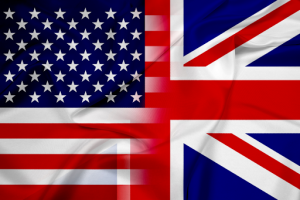
Impact on UK Heavy Manufacturing
Many key industries in the UK have been impacted by these tariffs. The most prominent ones are:
Steel Industry
The UK steel industry has long relied on the U.S. as a key export market. With 25% tariffs, British steel is priced out of competitiveness in the American market.
- British Steel, one of the largest producers, has proposed shutting down its blast furnaces in Scunthorpe, putting up to 2,700 jobs at risk.
- Energy costs and environmental levies had already dented profitability; tariffs have accelerated this downturn.
Producers now face a stark choice: scale down operations or reorient toward European and domestic markets.
Aluminum
Aluminium exporters are in a similarly precarious position. The Aluminium Federation (ALFED) has raised serious concerns about the incoming 25% tariffs on aluminium imports into the US, set to take effect on 12 March 2025. The impact is being felt across a wide range of industries that depend on aluminium products—most notably aerospace, automotive, construction, and electronics.
Furthermore, The Independent notes that the UK government suggests that about 6% of aluminium exports by volume go to the U.S. businesses operating in this sector are expected to feel the impact of the escalating trade war.
UK-based aluminium producers, including large enterprises and SMEs, have long relied on U.S. buyers to export lightweight structural components, building façades, electric vehicle parts, and precision engineering applications.
Automotive Sector
UK car manufacturing exports nearly 13% of its total production to the U.S., including top brands like Jaguar Land Rover, Rolls-Royce, and Mini. The new 25% tariffs on both finished vehicles and parts have delivered a direct blow.
In 2024, the UK produced approximately 780,000 cars, with about 16.9% of these exports destined for the U.S. market, equating to over 101,000 vehicles. This underscores the significant role the U.S. plays as a key export destination for UK car manufacturers.
The U.S.’s imposition of a 25% tariff on imported vehicles and parts has raised concerns about the competitiveness of UK automotive exports. The Institute for Public Policy Research (IPPR) has warned that such tariffs could put over 25,000 UK car manufacturing jobs at risk, particularly affecting employees at companies like Jaguar Land Rover and the Mini plant in Oxford.
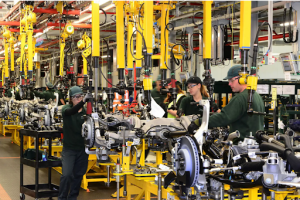
Impact on Other UK Industries
Some other UK industries that have been impacted by the US tariffs include:
- Pharmaceuticals & Medical Devices:
Though not directly tariffed, these sectors face delays and cost increases due to shipping issues and rising prices for U.S. ingredients. Regulatory divergence post-Brexit adds further complexity for exporters.
- Fashion & Apparel:
Luxury and mid-tier UK brands now face 10% import tariffs, reducing demand from U.S. retailers. Price-sensitive segments are particularly impacted.
- Electronics & Electrical Equipment:
This sector is indirectly affected by higher raw material costs, chip shortages, and declining investor confidence in global supply chains.
CNC Machining and Metal Presswork: Rising Costs, Shrinking Margins
Precision manufacturing sectors like CNC machining, laser cutting, and presswork are vital to the UK’s heavy and light industrial supply chains. However, these sectors are facing increasing pressure due to:
- Higher costs for imported raw materials, especially metals, are impacted by U.S. tariffs
- Decreased demand from U.S.-based clients who are cutting back on UK-sourced components
- Longer production cycles caused by disrupted logistics and uncertainty in export timelines
The Midlands, historically a stronghold for UK precision engineering, is particularly affected as manufacturers re-evaluate or delay orders due to shifting global trade policies.
In this environment, Kirmell Ltd offers a crucial lifeline. Based in Birmingham, Kirmell provides UK-manufactured components using CNC machining, presswork, and laser cutting, reducing dependency on imported raw materials and enabling faster local turnaround.
Our commitment to quality ensures that manufacturers can adapt quickly to changing order volumes without compromising standards. Contact us now for more information, or read our brochure to understand what we offer and how we can help you.
Recommendations for UK Manufacturers
Here are some strategic recommendations for UK manufacturers based on insights and expert opinions:
Diversify Export Destinations
With the imposition of U.S. tariffs, UK manufacturers are encouraged to explore alternative markets such as the European Union (EU), the Association of Southeast Asian Nations (ASEAN), and the Gulf Cooperation Council (GCC). These regions offer growing industrial demand and present opportunities to mitigate reliance on U.S. exports.
For instance, the UK’s accession to the Comprehensive and Progressive Agreement for Trans-Pacific Partnership (CPTPP) in December 2024 opened doors to new markets and enhanced trade prospects in the Asia-Pacific region.
Similar agreements can be signed with other countries and regional organisations where UK doesn’t have to rely on the US that much.
Invest in Domestic Supply Chains
Global trade volatility has made it essential for UK manufacturers to reinforce their domestic sourcing networks. Reducing dependence on overseas suppliers not only lowers exposure to tariffs but also improves lead times, cost predictability, and operational control.
A report by Capgemini indicates that UK companies plan to invest approximately $650 billion over the next three years to reshore and nearshore their manufacturing and supply chains, aiming to mitigate supply chain disruptions and geopolitical risks.
Many firms are turning to local precision manufacturers like Kirmell Ltd, which offers the latest manufacturing methods and welding solutions for industrial applications. Our ISO 9001:2015 certification ensures consistent quality.
- Engage in Policy Advocacy for Trade Exceptions
Active engagement with policymakers is crucial for securing favorable trade terms and mitigating the adverse effects of tariffs. Industry associations and business councils can play a pivotal role in advocating for sector-specific exemptions and negotiating trade agreements that protect the interests of UK manufacturers.
The UK’s ongoing efforts to establish strategic trade relationships, as outlined in various government publications, underscore the importance of collaborative policymaking in navigating the complexities of global trade.
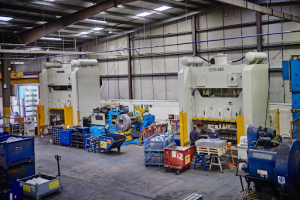
How Can Kirmell Help UK Manufacturers?
With expertise in heavy industrial manufacturing and export-ready operations, Kirmell Ltd supports businesses across the UK and Europe in strengthening their production strategies as global trade becomes more volatile.
What Kirmell Offers EU and UK Manufacturers:
- Precision Manufacturing – Presswork, laser cutting, CNC machining, fabrication, and welding tailored for industrial and engineering use.
- Component Supply & Support – A dependable source of UK-manufactured components to replace disrupted imports from China or the U.S.
- Prototype & Development Assistance – Fast tooling and design support to help launch or refine product lines quickly and reliably.
- ISO 9001:2015 Certified – Consistent quality and performance that meets international industry standards.
- Export-Friendly UK Location – Strategically located outside EU-wide tariffs, offering smooth access to European markets and insulation from U.S.-China duties.
- Stable Supply Chain Partnership – Enables manufacturers to diversify sourcing and reduce dependence on high-risk trade regions.
Contact us now for more information and get in touch with our experts.
Conclusion
The U.S. 2025 tariffs have forced a reckoning in UK manufacturing. From steel to surgical tools, nearly every industrial vertical has felt the sting of new trade barriers. However, this disruption also presents an opportunity to localise supply chains, reinvest in domestic production, and reduce long-term reliance on unpredictable global partners.
With industry players like Kirmell Ltd. offering scalable, high-quality alternatives for presswork, fabrication, and CNC machining, the UK is not just bracing for the storm—it’s building the foundations for a more self-reliant manufacturing future.
FAQ’s
How will US tariffs affect UK manufacturing in 2025?
What industries in UK manufacturing are most impacted by US tariffs?
How can EU alternatives help UK manufacturers deal with US tariffs?
How can Kirmell Ltd help UK manufacturers mitigate the impact of US tariffs?
What is the future of UK manufacturing in 2025?


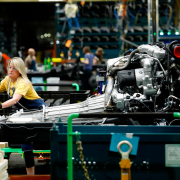


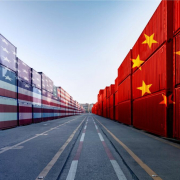



Leave a Reply
Want to join the discussion?Feel free to contribute!